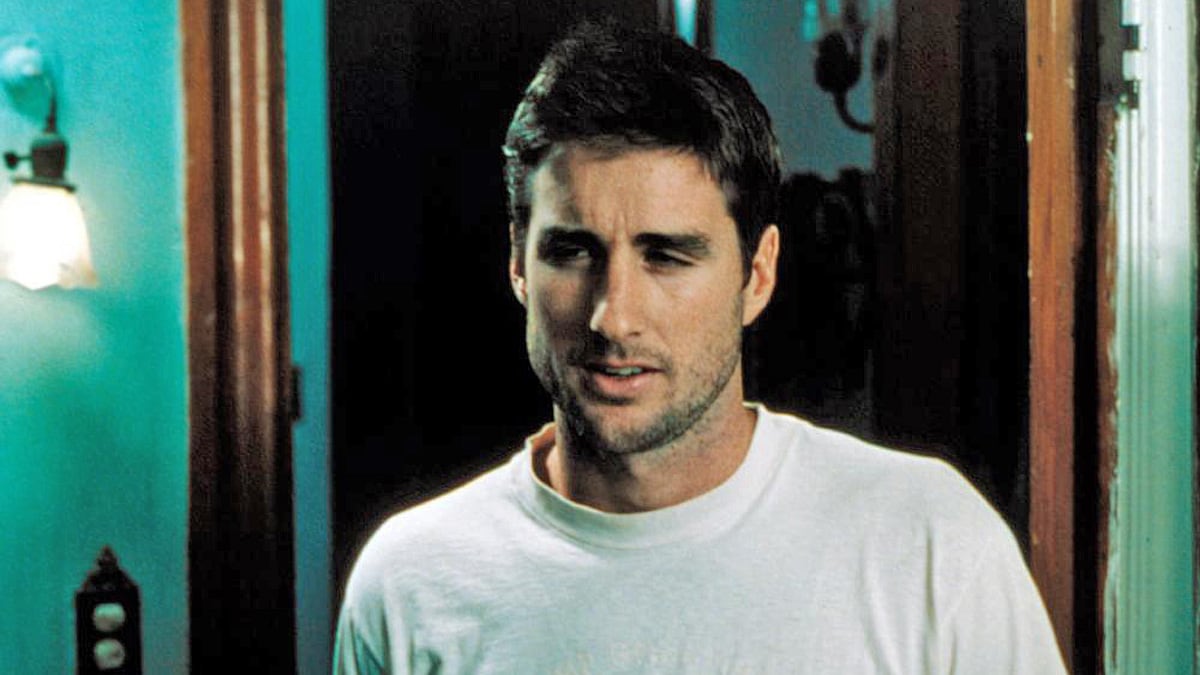Bongwater never had much of a chance.
Adapted from Portland author Michael Hornburg's widely panned grunge novel of the same name, the film follows a peevish painter-slash-pot dealer and his manic pixie ex-girlfriend through a series of loosely connected events. The film flopped in 1997, and would probably be totally forgotten were it not for its cast's later accomplishments.
Yes, there's a movie starring Jack Black, Brittany Murphy, Luke Wilson, Jamie Kennedy, Alicia Witt and Andy Dick, set and filmed in Portland, that few people in the city have ever seen. And that lingering critique should ring familiar to Portlanders and potheads alike: It's a gorgeous waste of potential that goes beyond the star-studded cast.
Devo frontman Mark Mothersbaugh, who'd score Rushmore, handled the music. Cameraman Richard Crudo later served six terms as president of the American Society of Cinematographers. Costumer Nancy Steiner outfitted Lost in Translation and Little Miss Sunshine. Producers Laura Bickford and Alessandro Uzielli would next purchase the property that became Steven Soderbergh's Traffic and the company that supplies objets d'art for Britain's royal family, respectively.
When he took on his first feature, Richard Sears had just won Best Short Film at Cannes for An Evil Town, an adaptation of a Charles Bukowski story. But Bongwater ended up being his last feature for almost two decades. His newest feature, Bottom of the World, a thriller starring Jena Malone (The Neon Demon, Nocturnal Animals) about a young woman who disappears and her boyfriend's search for her, was released in March.
"If the movie's not a success…you get put in jail a little bit," Sears laughs. "It played a couple festivals—opened at Los Angeles Film Festival, that was the big one—and got a good reception, but it was weird. People either loved this movie or they hated it, with no in-between. And, there was a lot of hate…'It's too slow! There's no plot!' To me, it was a study of a culture and a time and a place with these characters that you just hang out with. And, they're interesting, or they're not."
They were, the homegrown director says, very Portland.
The Portland lore starts with Hornburg, the book's author, who lived here during the grunge years. He wrote for The Portland Mercury before moving to New York and becoming an editor at Grove Press. He famously had a fling with Courtney Love while both lived here, and he played in an art rock band called the Usual Suspects.
Bongwater the book has a character named Courtney based on Love. The filmmakers feared legal action should their antiheroine, Serena, too closely resemble the newly ascendant actress, who'd just turned up blue in Larry Flynt's bathtub.
Meanwhile, the feel of the city and the characters was lost on a cast and crew flown up from Los Angeles for three weeks of filming.
"I knew people like David [Luke Wilson] meandered around like a lot of guys meandered their lives around—that's what drew me to him," Sears says. "The storyline wasn't really that enthralling. It's more about the characters. That's why I like Portlandia so much."
It's striking how many of Bongwater's shots of Portland use the same landmarks later made famous on television—and eerie how little the city's visual touchstones have altered.

That climactic embrace atop City Signs could've been captured last night, as could scenes outside David's residence next to the Bagdad Theater. Jack Black's band of crusty shroom hunters may well still hang out on Sauvie Island. The wholly unchanged Mary's Club, a notable presence in the novel, was Sears' first stop upon arrival and became a favorite of cast and crew both for drinks and as the setting for the film's signal moment, when David boozes while Serena sets his home ablaze.
If the locations look the same, though, arranging access was easier.
After a brief chat with Mary's manager, Sears was allowed to set up cameras and even enlist a dancer (credited as "Muffy") as an extra.
"Portland at that time was a very easy place to shoot," he says. "Everyone was very accommodating. I don't think we could have found a house to burn down anywhere else."
In fact, the Portland Fire Bureau was happy to burn down a house for him.
"The producer somehow wrangled that. It was kind of a training vehicle for their staff and just happened to be at the right time. This house in a really bad neighborhood had been condemned," he says. "Somebody had been evicted and left all this acid or lye inside, so nobody could ever go back because of chemical endangerment. We painted and did some little cosmetic fix-ups so the exterior would match where we had been shooting. It was an amazing day. Like, 'Holy shit! I can't believe they're letting us do this!' They burned that baby up, and we filmed 'em putting it out."
Members of the cast enjoyed their short Portland stays differently. Luke Wilson combed Powell's. Jack Black stalked Elliott Smith. Brittany Murphy attached her Walkman and roamed the streets of downtown. Andy Dick, however, disappeared.
"We never knew where Andy was," Sears says. "He was a fucking tornado, and very hard to corral. One night, we were at Mary's. I didn't even know he was at the bar when we hear some fight in the bathroom. Andy's in there, doing God knows what, and we had to yank him out."
Not that you can blame Dick for the film's oddities—or lack of success.
"I remember specifically, that scene with Luke and Andy having mimosas on the patio. We were getting ready to shoot, and Andy wasn't there. It's call time, the actors are getting dressed, hair and makeup setting up, and we're literally looking at the script trying to figure out a way to do this without Andy, when he rolls up. I don't think he'd slept a wink—up all night partying, doing something—and he just walks right on the set, puts on his little outfit, sits down, and…he just fucking nailed that scene."
SEE IT: Bongwater is available to purchase on iTunes. Bottom of the World is available to stream on Amazon Video.

